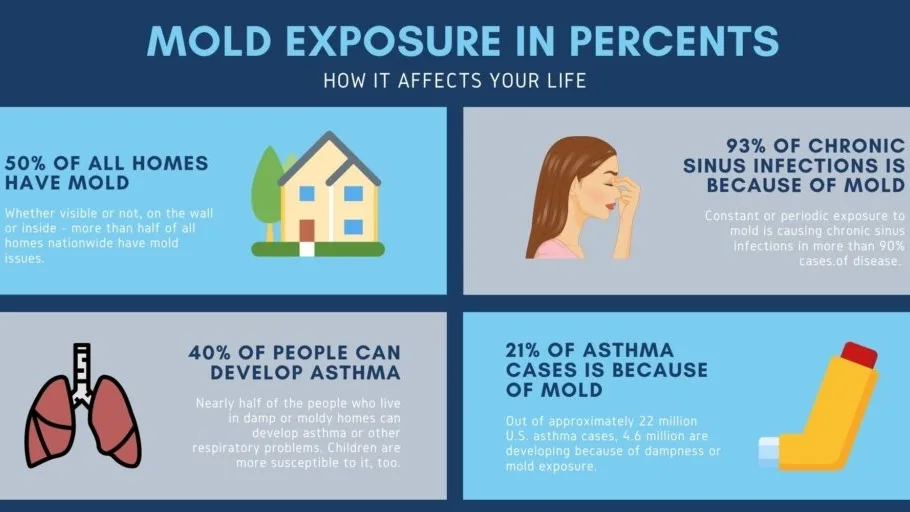
Black mold is a dangerous fungus that lurks in our homes, often going unnoticed until health symptoms start to appear. It thrives in warm and moist environments, making basements, showers, and windows its ideal breeding grounds. Exposure to this mold can trigger the immune system, leading to symptoms such as sneezing, coughing, congestion, and eye irritation. In some cases, it might even lead to respiratory issues and allergies.
The Health Effects of Black Mold Exposure
Black mold, scientifically known as Stachybotrys chartarum, produces toxins called mycotoxins that can cause severe health problems. When inhaled, these toxins can provoke an immune response, leading to a variety of symptoms. Some of the most common include respiratory problems such as wheezing, difficulty in breathing, and persistent coughing. Allergic reactions may also occur, characterized by skin irritation, watery eyes, and a runny nose. In severe cases, black mold exposure can even lead to serious health issues like asthma attacks, lung infections, and chronic sinusitis.
Identifying Black Mold
Black mold is often characterized by its greenish-black color and a musty odor. It usually grows on materials with a high cellulose content, such as wood, fiberboard, gypsum board, paper, dust, and lint. However, it’s essential to note that not all molds that appear black are the dangerous Stachybotrys chartarum, so it’s always important to contact a professional for accurate identification.
Preventing and Removing Black Mold
Preventing black mold involves controlling the moisture level in your home. This can be achieved by keeping humidity levels below 50%, using air conditioners or dehumidifiers, and ensuring proper ventilation, especially in bathrooms and kitchens. Fixing leaks promptly and using mold-inhibiting products can also help to keep black mold at bay.
If mold is already present, it is vital to remove it carefully to prevent the spread of spores. Small areas of mold can be cleaned with a mild detergent and water, while larger infestations may require the assistance of a professional mold remediation service.
The Bottom Line
Black mold can pose significant health risks, but with the right preventative measures and prompt action at the first sign of growth, these risks can be effectively mitigated. Remember, the key is to control moisture and ensure good ventilation in your home. If you suspect the presence of black mold, don’t hesitate to seek professional help to ensure it is safely and thoroughly removed.

